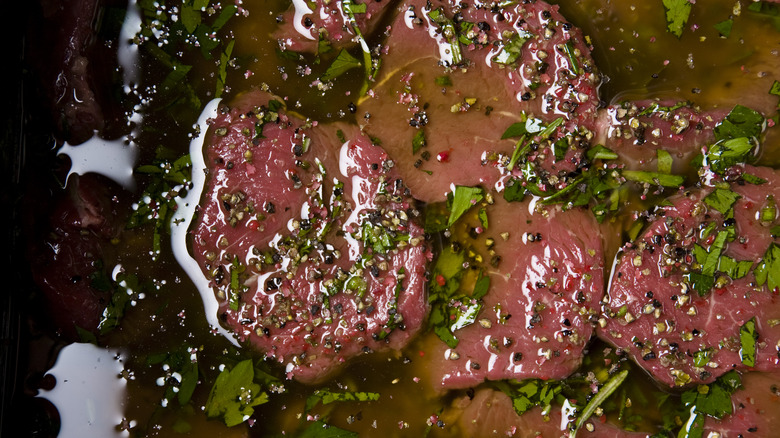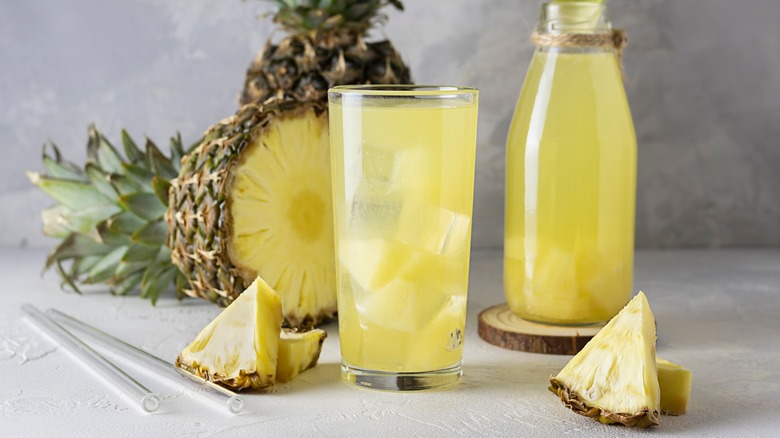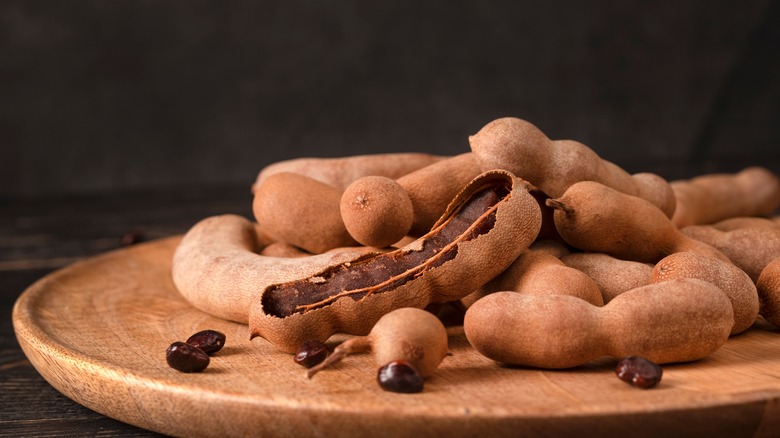Fruit Enzymes Are Key For Deliciously Tender Meat
Marinades are great for adding flavor and tenderness to meat — no one really disputes that. But there are all sorts of marinating tips that can really up your meat game. These can include things like freezing meat in a marinade (saving you time and effort later in the process) and even the reverse marinade, where you add the marinade after the meat is cooked. You've got plenty of options.
But one tip you might not realize involves what you use in the marinade itself. Marinades often make use of eggs, oil, or other neutral ingredients, but plenty of recipes call for acidic components like vinegar under the argument that the acid tenderizes the meat. Only that's not really true. These elements are great for adding flavor, but they don't penetrate deep enough to really tenderize anything. There is, however, another marinade ingredient that can serve that purpose beautifully: fruit juice.
Fruit juice does what vinegar can't
There's no denying that an acid like vinegar is great for packing a potent flavor punch. After all, there's a reason acid is sometimes considered one of the basic elements of flavor along with fat, salt, and heat. The problem is that while acids might tenderize the outside of your meat, they can't get deeper into the protein itself.
Fruits, though, are a little different. Their primary component isn't (usually) acid — it's sugar, which contains natural enzymes that have an easier time getting into the meat. The other advantage here is these enzymes also tend to work quickly, typically taking only about 15 minutes to really break things down. The flip side of that is you definitely don't want to leave meat marinating too long in fruit juice or the texture will suffer as it becomes mushy.
There are several different fruits that work well for marinades
So what sort of fruit juice or fruit extracts should you use to marinate your meat? The good news is you're not spoiled for choice. Citrus is an obvious call — lemon juice is already a common marinade, but sweeter citrus works, too. Pineapple is great too because it provides a good balance between sweetness and tartness. Papaya is good if you're going for more of a creamy texture. Kiwi is also excellent, as it has a relatively mild flavor that pairs well with saltier notes like soy sauce or Worcestershire sauce.
Maybe the best is one many Americans might not be as familiar with, but which Caribbean cuisine has made heavy use of for centuries: tamarind. The interesting thing about tamarind is it splits the balance between sweet and sour, meaning you'll get the benefit of fruit enzymes and the punch of vinegar. It's maybe the best-kept secret in the fruit aisle.
Ultimately, which fruit you use is up to you — there are benefits and drawbacks to each. Don't be afraid to experiment a bit to figure out your favorite choice.


